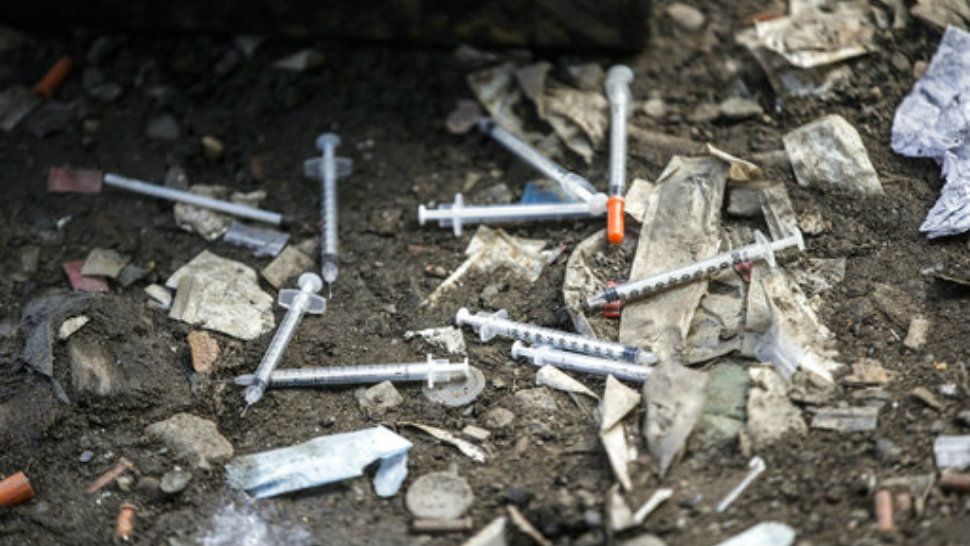Maine is experiencing a perfect storm of crises with opioid deaths, deadly fentanyl, COVID-19 and mental health challenges, the director of the state’s opioid response told lawmakers Thursday.
“It’s been difficult to manage this epidemic within the global pandemic,” Gordon Smith told members of the Health and Human Services Committee. “We did not have a great year in 2021.”
Maine recorded 635 suspected drug overdose deaths last year, a 23% increase over 2020. Smith said that number will be confirmed over the coming months, as more testing data is completed, but it is likely very close to accurate.
And while that’s a high number, nearly 10,000 people survived an overdose, he said, largely because of the distribution of naloxone.
During a presentation to the committee, Jessica Pollard, director of the Office of Behavioral Health, described a state program called Overdose Prevention Through Intensive Naloxone and Safety. She said the state has trained recovery coaches, opened two new methadone clinics, opened new syringe service provider sites and is handing out fentanyl test strips.
“This is mostly an epidemic of fentanyl,” Smith said. “The data shows the percentage of cases directly linked to fentanyl went from 67% in 2020 to 77% in 2021. It is really in everything.”
In 2022, the state plans to launch several initiatives, including a dedicated phone line so people who need help have an alternative to calling 911 and plans to open a Cumberland County Crisis Center.
Rep. Colleen Madigan (D-Waterville) asked what types of support are available for families. She said her sister died last week from alcohol withdrawal and she doesn’t feel enough service providers are aware of what’s available.
“I think the system is failing people in multiple ways,” she said. “If I couldn’t get her the help then I think many families are lost. When a family member asks for intervention services, it needs to happen.”
Pollard said it is important to get services to people when they are ready to accept help. The state is focused on increasing the number of beds available and on finding the staff needed, she said.
Rep. Michael Lemelin (R-Chelsea) asked what the state is doing to stop the drugs from coming into Maine. Smith said he recently met with several law enforcement officials who said there are now fewer officers doing drug interdiction than there have been in the past.
“There’s probably more supply in Maine than there’s ever been and it’s more lethal than ever,” Smith said. “In the long run, there’s probably not a lot we can do on the supply side because it has to do with international drug cartels.”
In addition to working with police, Smith said the state has to work with slowing down demand for drugs by addressing the trauma that causes people to turn to them.
“There’s a reason people use drugs,” he said. “There’s a little bit of genetics in there. But most people are reacting to horrible things that have happened to them.”
With additional federal funds on the way, and settlement money from opioid companies, Smith said he’s optimistic that things will improve in the coming year. Once the pandemic is no longer the focus, public attention will turn to battling the opioid crisis, he said.
“If it wasn’t for the pandemic, this issue we’re talking about would be the only thing people talk about,” he said. “It would be seen as the huge public health crisis of our time.”



